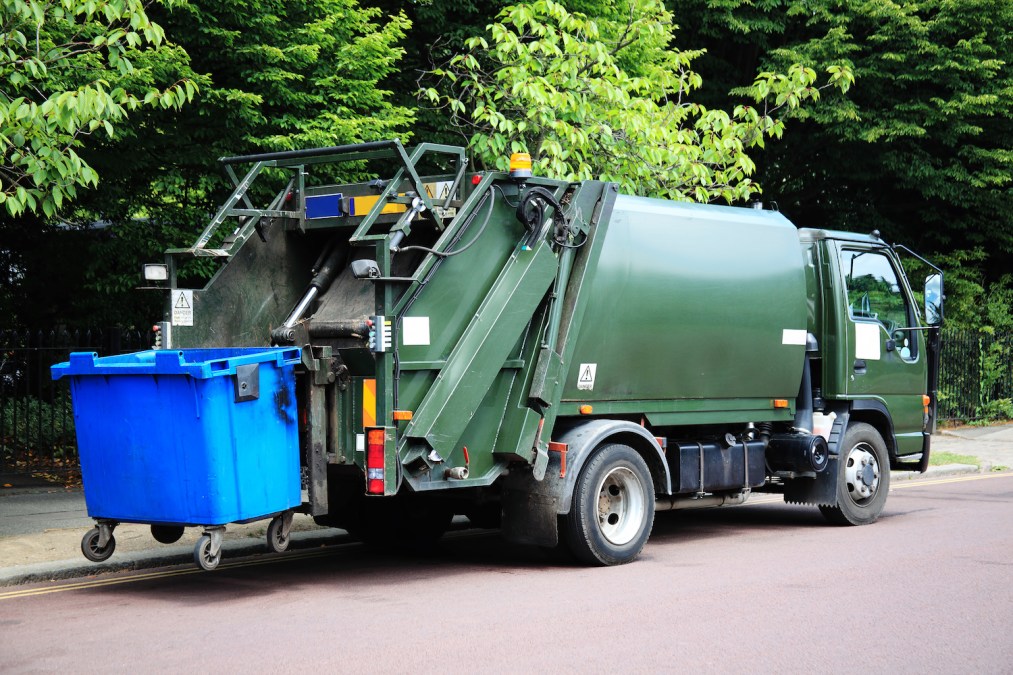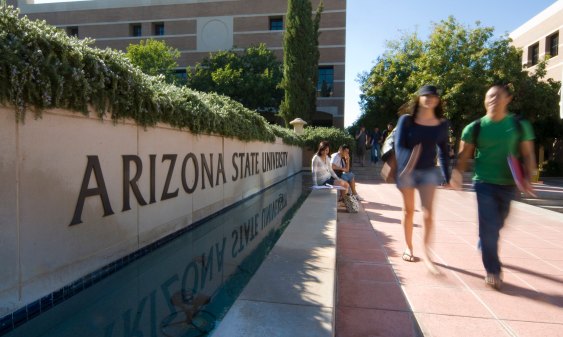Arizona State students design ‘trash truck of the future’

Technology is changing every industry, including waste management, and at Arizona State University students have set out to design the “garbage truck of the future” to transform the safety and efficiency of trash collection for the 21st century.
“The theme of the project, was making trucks smarter so that drivers don’t have to do as much,” Kevin Dooley, a professor of supply chain management at Arizona State, said in university press release.
Over the past fall semester, 36 graduate students studying business and industrial design at Arizona State partnered with Republic Services, one of the nation’s largest recycling and waste disposal companies, which is headquartered in Phoenix, Arizona, to help tackle this real-world problem and get hands-on experience developing technology-based solutions for industry. Students were divided into teams and asked to come up with new designs for garbage trucks.
“We were looking for a partner to help us improve efficiency and make the job less strenuous for drivers,” Brett Beitzel, Republic’s director of fleet and asset management, said in the release.
The university said students spent several weeks gaining greater insight on the challenges of trash collection, poring over customer and driver data and shadowing garbage truck drivers on their collection routes to observe their motions and pain points on the job. Many of the resulting solutions incorporated artificial intelligence to improve the process of trash collection, reducing the possibility of human error and easing the demands on drivers.
Industrial design student Patrick Andrus and his team pulled ideas from the emerging autonomous vehicle industry to come up with a trash container that can detach from its truck and drive itself to the dump, leaving the driver free to go elsewhere. Reducing the operating costs of transfer stations would save Republic somewhere around $70 million a year, the team estimates.
Another team of students also incorporated artificial intelligence into their garbage truck design to improve the efficiency of trash collection, as well as the safety of drivers. Business student Abby Rudd and her team observed that trash bins are often located in confined spaces or surrounded by a gate. This means that to empty the bins, truck drivers must angle their trucks so the hydraulic arms are in perfect position to reach a bin, a time-consuming and risky process.
“Lots of accidents occur when you’re backing up,” Beitzel explained in the release. “Our drivers use cameras and sensors, but it’s still the hardest place to see. If you can reduce backing, it will improve safety a ton.”
To address this issue, Rudd’s team created a system that uses AI and sensors to guide a truck into the right position to retrieve a bin on the first try. The system could save Republic more than $130,000 a year on labor and fuel for each route, the team estimated.
Other solutions not centered on AI include a rotational axle system that would allow big trucks to pivot 360 degrees and a “perpetual motion” system, in which a truck would slow down, but not quite stop to collect trash along its route.
Students said they valued the opportunity to tackle real-world problems with this project, and Republic Services said it plans to evaluate the students’ ideas and include them as part of the company’s strategic technology road map.
“No matter what you’re doing, defining and analyzing a problem, getting to the root cause, brainstorming and discussing the business case is going to be relevant. It’s a process I know I can leverage for a future role,” Rudd said.




